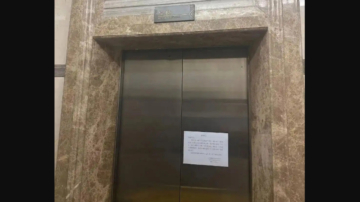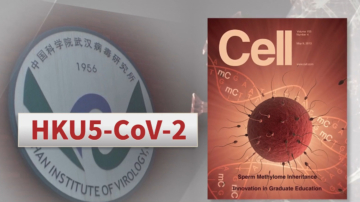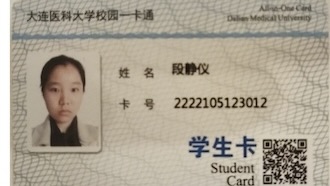【新唐人2013年02月04日讯】当今中国社会的怨气为甚么特别大?着名经济学家茅于轼新书《中国人的焦虑从哪里来》,以一个经济学家的角度,对中国当前面临的各种问题进行理性的分析,用鲜活的案例与经济资料,反映当下中国人的精神状态与生活现状。
中国经济学家茅于轼最近出版的新书提到,大陆虽然取得经济发展,民怨却特别深。
中国经济学家茅于轼:“这本书不是我一次写成的,是断断续续的一些文章收集在一起,实际上就是中国正处于一个转型的社会,有很多问题需要讨论的,我就发表我的看法吧。”
茅于轼提出几个大家关注的问题,第一,问国家:要改革还是要建设?以人为本还是以国为本?第二,问社会:如何看待社会不公,怎样获得公平?富人的良心哪里去了?第三,问民生:为甚么我们住不上廉租房?为甚么城管、保安经常打人?茅于轼认为,主因是“社会正义的缺失”,正义缺失简单讲,就是“不讲理”。
茅于轼:“简单说,孙中山推翻了满清,中国的帝制和皇权好像是被清算了,实际上这个东西是死而不僵,一直是反反覆覆的出现,到毛泽东干脆也变成秦始皇了。”
茅于轼《中国人的焦虑从哪里来》全书从“正视社会不公”谈起,对中国当前面临的各种问题进行理性的分析,用案例与数据自答,剖析当下中国人的精神状态与生活现状。茅于轼呼吁中共“放弃私利,恢复讲理,这是解决民怨的唯一道路。”
美国“南卡罗莱纳大学艾肯商学院”教授谢田认为,中共自始自终不会放弃手中的权力。
美国南卡罗莱纳大学艾肯商学院教授谢田:“中共从建政开始,他在大同社会、共产主义,这些虚假的谎言,把财富集中他手上之后,从来没有放下他的私利。这种情况下,要镇压民众的抗暴也好,或者是维持他的暴力统治也好,这些都是需要钱,所以要他放下私利的话,实际上基本上等于放下他们自己的权力,放下自己的权力,中共会马上就会解体。”
谢田表示,中国人民对中共不仅是焦虑和怨气,而是一种愤怒。
谢田:“越来越多的中国人,越来越认识到中共的本质,和中共犯下的罪刑,中共在这60多年来,杀害了七千万、八千万的中国民众,虽然这些事实被披露出来之后,中共的本性被揭示出来,到今天的活摘器官也被国际社会所正视所关注。”
另外,茅于轼的新书还提到,大陆每年有成千上万“民告官”的诉讼,但胜诉不到10%,某些地方政府还抓上访求诉正义的人,“关他们、打他们”,打压帮助百姓维权的律师,让百姓伸张正义道路非常艰难,社会陷入正义无望,于是民怨迭起,百姓不再信任政府。
茅于轼新书内容表示,通常,百姓是没有武装的,他们只能靠讲理来生存。如果他们的生存受到威胁,讲理又讲不通,国家就不稳了。而,社会有纷争的时候,通过谈判不见得总能达成协议,所以最后必须有不动武的解决办法,那就是通过全民投票解决问题。比如决定国家领导人,如果两派相持不下,就由投票解决,那就是民主宪政制度。“有了这样一套规矩,社会就能讲理,就一定能稳定,民怨也就没有了。”
茅于轼 2012年3月,获得米尔顿.弗里德曼自由奖。1975年开始,从事微观经济学研究。1986年在美国哈佛大学担任访问学者,1987年回中国,此后7年内担任非洲能源政策研究网顾问﹔1993年从中国社科院退休,参与创办“北京天则经济研究所”。
采访/陈汉 编辑/黄亿美 后制/王明宇
Mao Yushi's New Book:
Where does the Chinese People's Discontent Come From?
Why is there such great social discontent in China?
Mao Yunshi, a well-known economist, just published a new
book “Where does Chinese People's Anxiety Come From”.
In this book, he objectively analyzes all kinds of issues that
China is facing from an economic point of view.
He utilized real cases and economic analyses to reflect
Chinese people's current spiritual and living situation.
Mao Yunshi, Chinese economist,
recently publicized his new book,
in which he says that people's discontent
has been escalating as fast as China's economy.
Mao Yunshi: “My new book wasn't completed all at once.
The articles in this book were collected over time.
China is at the stage of a society in transformation.
A lot of issues need to be discussed,
so I am only expressing my own opinion.”
Mao Yunshi raised a couple of questions that
people most care about.
The first one was addressed to the country:
Should reform or continued construction be applied?
Should the country be people-oriented or nation-oriented?
The second question was addressed to society:
how to deal with society's injustices and how to acquire justice?
Where is the conscience of the wealthy?
The third question was addressed to people's livelihoods:
Why can't we rent cheaper? Why do city police and safety guards often beat ordinary people?
Mao Yunshi thinks that all of these problems are caused by
the loss of society's sense of justice.
Mao Yunshi: “Simply speaking, Sun Zhongshan
overturned the Qing Dynasty.
It seems that the imperial system and imperial power
were eliminated from China.
In fact, the imperial system has never died out.
It comes back and forth. Even Mao Zedong
declared himself “First Emperor of Qin”.”
The book “Where does Chinese people's anxiety come from”
begins with a discussion of “Facing up to Social Injustice”.
He objectively analyzed all kind of issues that
China is facing right now.
The analysis is backed up with real cases and numbers.
The book also summarizes Chinese people's
current spiritual and living conditions.
Mao Yushi has asked the Chinese Communist Party
to give up self-interest and resume justice, this is the only way to solve social discontent.
Xie Tian, Professor from Business School,
University of South Carolina Aiken, stated that
the CCP has never planned to give up their power.
Xie Tian: “Since the CCP was founded, communism
has been used as a tool to collect wealth from people.
Self-interest is always the CCP's only goal.
In order to crack down on its people's resistance,
or to maintain its totalitarian regime, money is needed.
Therefore, if they let go their self-interest, they are
letting go their power. Once they lose their power, the CCP will disintegrate immediately.”
Xie Tian also stated that what Chinese people have now
is not only anxiety or discontent, but anger.
Xie Tian: “More and more Chinese people see the essence
of the CCP and the crimes that the CCP has committed.
In the past 60 years, the CCP has killed 7,0 or 8,0 million
Chinese people.
Now these facts are disclosed and
the essence of the CCP is exposed.
The crime, live organ harvesting, committed by the CCP
is also getting more and more international attention.”
In his new book, Mao Yunshi also mentions that
there are hundreds of thousands of petitions in which
ordinary people accuse of officials.
However, the success rate of those petitions is less than 10%.
Some local governments arrest those who appeal for justice,
then imprison them or beat them.
Mao Yunshi says in his new book that ordinary people
don't have any weapons and they can only address the injustice by reasoning things out.
However, when their lives are endangered there
is nowhere they can address their reasoning.
In this case, there is no way that the country can be stable.
When there is any controversy, negotiation doesn't
necessarily solve the disagreement.
In this situation, there has to be some way to solve it
without using force, this is a free vote for all of the people.
For example, when two factions cannot agree on
the candidates of nation's senior leadership,
voting should be used to solve the disagreement.
This is a Democratic constitutional system.
“Once this set of rules is set up,
society will be able to reason things out.
Society will thus become stable.
People's discontent will disappear too.”
In February 2012, Mao Yunshi was awarded
the Milton Friedman Prize.
Since 1975, Mao has been working on
the study of micro- economics.
In 1986, he stayed at Harvard University
as a visiting scholar. He went back to China in 1987.
Since then, he has served as a consultant for research
on African energy policies for 7 years.
In 1993, he retired from the Chinese Academy of
Social Sciences and helped found “Beijing Tianze Economic Research Institute”.
中国经济学家茅于轼最近出版的新书提到,大陆虽然取得经济发展,民怨却特别深。
中国经济学家茅于轼:“这本书不是我一次写成的,是断断续续的一些文章收集在一起,实际上就是中国正处于一个转型的社会,有很多问题需要讨论的,我就发表我的看法吧。”
茅于轼提出几个大家关注的问题,第一,问国家:要改革还是要建设?以人为本还是以国为本?第二,问社会:如何看待社会不公,怎样获得公平?富人的良心哪里去了?第三,问民生:为甚么我们住不上廉租房?为甚么城管、保安经常打人?茅于轼认为,主因是“社会正义的缺失”,正义缺失简单讲,就是“不讲理”。
茅于轼:“简单说,孙中山推翻了满清,中国的帝制和皇权好像是被清算了,实际上这个东西是死而不僵,一直是反反覆覆的出现,到毛泽东干脆也变成秦始皇了。”
茅于轼《中国人的焦虑从哪里来》全书从“正视社会不公”谈起,对中国当前面临的各种问题进行理性的分析,用案例与数据自答,剖析当下中国人的精神状态与生活现状。茅于轼呼吁中共“放弃私利,恢复讲理,这是解决民怨的唯一道路。”
美国“南卡罗莱纳大学艾肯商学院”教授谢田认为,中共自始自终不会放弃手中的权力。
美国南卡罗莱纳大学艾肯商学院教授谢田:“中共从建政开始,他在大同社会、共产主义,这些虚假的谎言,把财富集中他手上之后,从来没有放下他的私利。这种情况下,要镇压民众的抗暴也好,或者是维持他的暴力统治也好,这些都是需要钱,所以要他放下私利的话,实际上基本上等于放下他们自己的权力,放下自己的权力,中共会马上就会解体。”
谢田表示,中国人民对中共不仅是焦虑和怨气,而是一种愤怒。
谢田:“越来越多的中国人,越来越认识到中共的本质,和中共犯下的罪刑,中共在这60多年来,杀害了七千万、八千万的中国民众,虽然这些事实被披露出来之后,中共的本性被揭示出来,到今天的活摘器官也被国际社会所正视所关注。”
另外,茅于轼的新书还提到,大陆每年有成千上万“民告官”的诉讼,但胜诉不到10%,某些地方政府还抓上访求诉正义的人,“关他们、打他们”,打压帮助百姓维权的律师,让百姓伸张正义道路非常艰难,社会陷入正义无望,于是民怨迭起,百姓不再信任政府。
茅于轼新书内容表示,通常,百姓是没有武装的,他们只能靠讲理来生存。如果他们的生存受到威胁,讲理又讲不通,国家就不稳了。而,社会有纷争的时候,通过谈判不见得总能达成协议,所以最后必须有不动武的解决办法,那就是通过全民投票解决问题。比如决定国家领导人,如果两派相持不下,就由投票解决,那就是民主宪政制度。“有了这样一套规矩,社会就能讲理,就一定能稳定,民怨也就没有了。”
茅于轼 2012年3月,获得米尔顿.弗里德曼自由奖。1975年开始,从事微观经济学研究。1986年在美国哈佛大学担任访问学者,1987年回中国,此后7年内担任非洲能源政策研究网顾问﹔1993年从中国社科院退休,参与创办“北京天则经济研究所”。
采访/陈汉 编辑/黄亿美 后制/王明宇
Mao Yushi's New Book:
Where does the Chinese People's Discontent Come From?
Why is there such great social discontent in China?
Mao Yunshi, a well-known economist, just published a new
book “Where does Chinese People's Anxiety Come From”.
In this book, he objectively analyzes all kinds of issues that
China is facing from an economic point of view.
He utilized real cases and economic analyses to reflect
Chinese people's current spiritual and living situation.
Mao Yunshi, Chinese economist,
recently publicized his new book,
in which he says that people's discontent
has been escalating as fast as China's economy.
Mao Yunshi: “My new book wasn't completed all at once.
The articles in this book were collected over time.
China is at the stage of a society in transformation.
A lot of issues need to be discussed,
so I am only expressing my own opinion.”
Mao Yunshi raised a couple of questions that
people most care about.
The first one was addressed to the country:
Should reform or continued construction be applied?
Should the country be people-oriented or nation-oriented?
The second question was addressed to society:
how to deal with society's injustices and how to acquire justice?
Where is the conscience of the wealthy?
The third question was addressed to people's livelihoods:
Why can't we rent cheaper? Why do city police and safety guards often beat ordinary people?
Mao Yunshi thinks that all of these problems are caused by
the loss of society's sense of justice.
Mao Yunshi: “Simply speaking, Sun Zhongshan
overturned the Qing Dynasty.
It seems that the imperial system and imperial power
were eliminated from China.
In fact, the imperial system has never died out.
It comes back and forth. Even Mao Zedong
declared himself “First Emperor of Qin”.”
The book “Where does Chinese people's anxiety come from”
begins with a discussion of “Facing up to Social Injustice”.
He objectively analyzed all kind of issues that
China is facing right now.
The analysis is backed up with real cases and numbers.
The book also summarizes Chinese people's
current spiritual and living conditions.
Mao Yushi has asked the Chinese Communist Party
to give up self-interest and resume justice, this is the only way to solve social discontent.
Xie Tian, Professor from Business School,
University of South Carolina Aiken, stated that
the CCP has never planned to give up their power.
Xie Tian: “Since the CCP was founded, communism
has been used as a tool to collect wealth from people.
Self-interest is always the CCP's only goal.
In order to crack down on its people's resistance,
or to maintain its totalitarian regime, money is needed.
Therefore, if they let go their self-interest, they are
letting go their power. Once they lose their power, the CCP will disintegrate immediately.”
Xie Tian also stated that what Chinese people have now
is not only anxiety or discontent, but anger.
Xie Tian: “More and more Chinese people see the essence
of the CCP and the crimes that the CCP has committed.
In the past 60 years, the CCP has killed 7,0 or 8,0 million
Chinese people.
Now these facts are disclosed and
the essence of the CCP is exposed.
The crime, live organ harvesting, committed by the CCP
is also getting more and more international attention.”
In his new book, Mao Yunshi also mentions that
there are hundreds of thousands of petitions in which
ordinary people accuse of officials.
However, the success rate of those petitions is less than 10%.
Some local governments arrest those who appeal for justice,
then imprison them or beat them.
Mao Yunshi says in his new book that ordinary people
don't have any weapons and they can only address the injustice by reasoning things out.
However, when their lives are endangered there
is nowhere they can address their reasoning.
In this case, there is no way that the country can be stable.
When there is any controversy, negotiation doesn't
necessarily solve the disagreement.
In this situation, there has to be some way to solve it
without using force, this is a free vote for all of the people.
For example, when two factions cannot agree on
the candidates of nation's senior leadership,
voting should be used to solve the disagreement.
This is a Democratic constitutional system.
“Once this set of rules is set up,
society will be able to reason things out.
Society will thus become stable.
People's discontent will disappear too.”
In February 2012, Mao Yunshi was awarded
the Milton Friedman Prize.
Since 1975, Mao has been working on
the study of micro- economics.
In 1986, he stayed at Harvard University
as a visiting scholar. He went back to China in 1987.
Since then, he has served as a consultant for research
on African energy policies for 7 years.
In 1993, he retired from the Chinese Academy of
Social Sciences and helped found “Beijing Tianze Economic Research Institute”.








